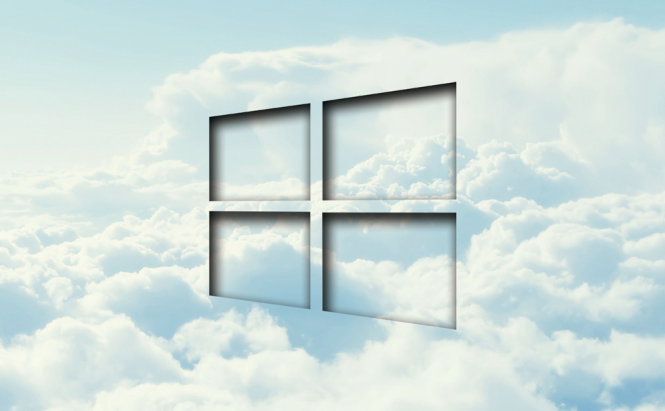It is an open fact that in recent years Chromebooks took the educational sector by storm both in the US and outside the country. The main reason is the Linux-based operating system – Google OS – that provides using essential programs as web-services through the Google Chrome browser even on cheaper and low performance hardware. This alternative to Windows-based machines proved to be a blessing to schools and universities around the World, especially in the regions with limited resources. Now Microsoft is going to shake the status quo with introduction of its own school-targeted OS – the Windows Cloud.
A confirmed leak of the early build that surfaced over the weekend showed that the Cloud looks just like a stripped-down version of Windows 10. In its current state the Cloud will only run Universal Windows Platform apps from the Windows Store. This is a security measure as it prevents users from installing unapproved games or potential malware. You will also not be able to run ‘native’ Win32 apps through the Microsoft’s ‘Project Centennial’, at least for now. As a result we are left with a desktop, a preinstalled Microsoft Edge browser and – probably – a version of Microsoft Office. The leak also hints at a possible upgrade to Windows 10 Pro, which makes Windows Cloud akin to the lite versions of Win XP and 7 that came on netbooks back in the day. All these measures seem to cater to small businesses, schools and libraries providing a familiar look with improved security. If the price of the final product hits that sweet spot – Microsoft will have everything they need to take a foothold in the market dominated by Chromebooks.
 The Cloud looks and feels like a stripped-down Windows 10
The Cloud looks and feels like a stripped-down Windows 10
The official release date for the platform is yet unclear, but there are some speculations that it could come out relatively soon. We are almost certain to get some news about the Cloud with the Windows 10’s Creative Update in April. However, when the OS does come out – it will be up to a severe competition. Recently Google announced that all Chromebooks starting from 2017 will be able to run Android apps straight from the Play Store. This should even up the odds. As for now it’s hard to predict whether Microsoft could keep up with accessibility and functionality of Google OS. Let’s wait and see.
If you find the article interesting, you may also like our previous entries, such as: "Newer Chromebooks to start offering support for Android apps" or "Windows 10 Creator Update will bring a much improved Edge".





What am I missing here?